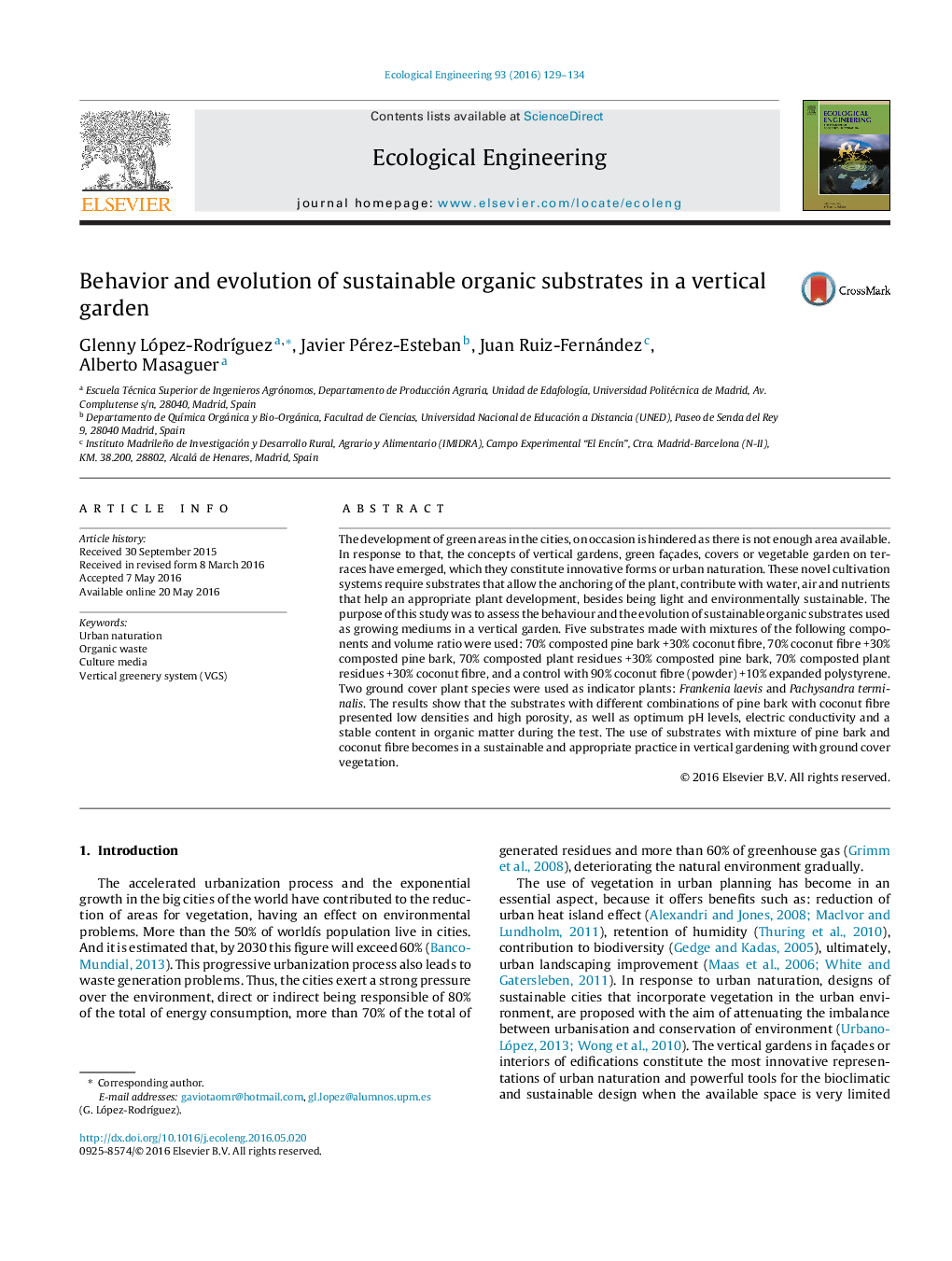| Article ID | Journal | Published Year | Pages | File Type |
|---|---|---|---|---|
| 4388721 | Ecological Engineering | 2016 | 6 Pages |
•All tested substrates showed adequate densities and porosities.•Composted pine bark and coconut fibre maintain adequate pH, salinity and C/N.•Pine bark and coconut fibre are sustainable and appropriate for vertical gardening.
The development of green areas in the cities, on occasion is hindered as there is not enough area available. In response to that, the concepts of vertical gardens, green façades, covers or vegetable garden on terraces have emerged, which they constitute innovative forms or urban naturation. These novel cultivation systems require substrates that allow the anchoring of the plant, contribute with water, air and nutrients that help an appropriate plant development, besides being light and environmentally sustainable. The purpose of this study was to assess the behaviour and the evolution of sustainable organic substrates used as growing mediums in a vertical garden. Five substrates made with mixtures of the following components and volume ratio were used: 70% composted pine bark +30% coconut fibre, 70% coconut fibre +30% composted pine bark, 70% composted plant residues +30% composted pine bark, 70% composted plant residues +30% coconut fibre, and a control with 90% coconut fibre (powder) +10% expanded polystyrene. Two ground cover plant species were used as indicator plants: Frankenia laevis and Pachysandra terminalis. The results show that the substrates with different combinations of pine bark with coconut fibre presented low densities and high porosity, as well as optimum pH levels, electric conductivity and a stable content in organic matter during the test. The use of substrates with mixture of pine bark and coconut fibre becomes in a sustainable and appropriate practice in vertical gardening with ground cover vegetation.
